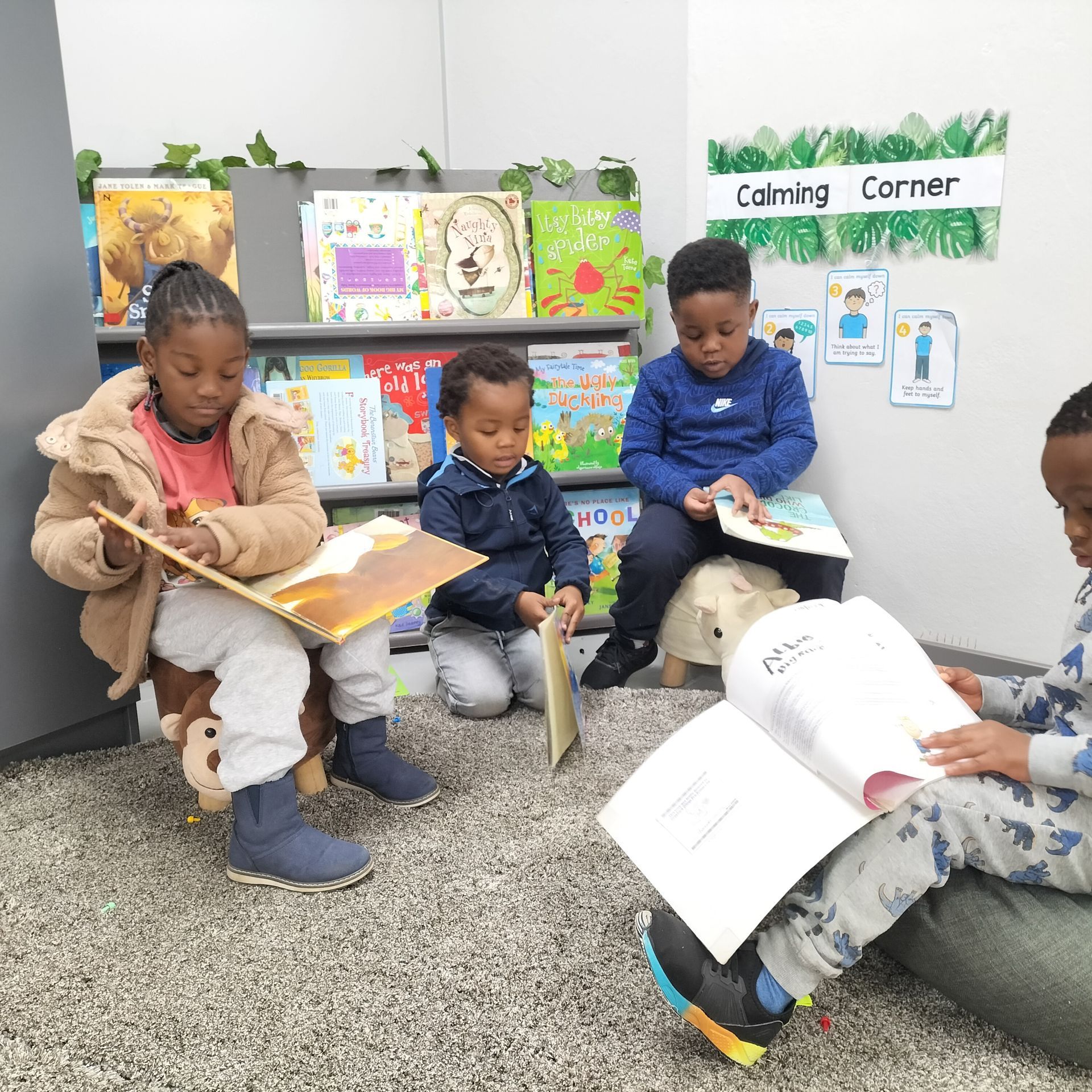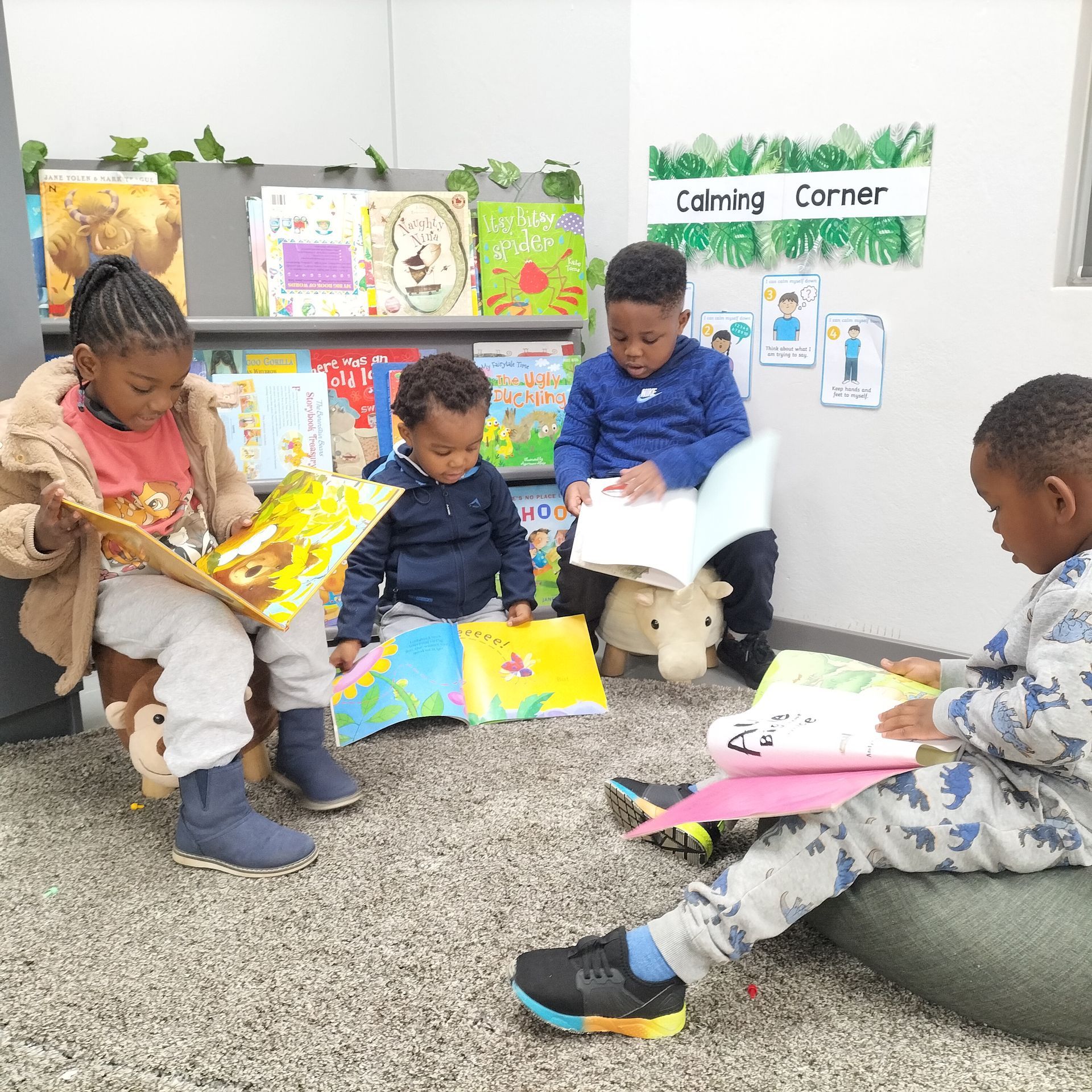Bryanston September 2023 Newsletter
Karabo Molokomme • October 6, 2023
Planting Seeds of Success: The Importance of Emergent Literacy
From the moment our Grade 000 students set foot into our nurturing environment, they are immersed in a world where, stories, imagination and creativity connect. Emergent literacy is not just about preparing our students for academic success; it's about fostering a passion for learning that will last a lifetime.
Understanding Emergent Literacy
Vogler-Elias (2013) defines emergent literacy as a journey where young minds embark on the path of language exploration and creativity, long before they formally grasp the art of reading and writing. It encompasses a plethora of literacy-rich activities that children joyfully participate in from birth to around 5 years of age. Literacy builds on the foundations of language to include the advanced ways in which we use language to communicate. Emergent literacy prepares a child’s brain with the skills they will need to learn how to read.
The Importance of Emergent Literacy
Here are some key reasons why emergent literacy is crucial:
· Builds a strong foundation.
· Enhances language development.
· Encourages creativity and imagination.
· Cultivates cognitive skills.
· Cultivates critical listening skills.
Engaging Literacy Activities in our Grade 000 class:
In our Grade 000 class, we immerse our students in a multitude of engaging emergent literacy activities, nurturing their love for reading and writing. These activities encompass a wide range of exciting experiences, such as shared storybook reading/Independent reading, writing, and drawing, and playful incorporation of literacy themes into their imaginative play.
Among these activities, shared storybook reading holds a special place in our hearts and is undeniably a favourite among our students. At the end of each day, we gather in our enchanting reading corner, adorned with a captivating array of books, and embark on thrilling journeys into the world of stories. The magic of storytelling comes alive as we share in the excitement of wondrous tales together. Additionally, we encourage our Grade 000 students to take some time during the day to read independently, which not only nurtures their imagination but also helps them develop the confidence to explore the world of books on their own.
But the wonders of emergent literacy extend far beyond the captivating realm of stories. As our students pretend to write or draw, the doors to their imagination swing wide open. They express their inner thoughts and ideas through lines and shapes, fostering essential fine motor skills that are fundamental for their overall development. Through role-playing the characters and scenes from the stories we read, the classroom transforms into a stage of imagination and creativity. Children become the brave knights, wise wizards, adventurous explorers, and beloved characters of the books they cherish. With every role they assume, they immerse themselves in the worlds of literature, adding a touch of their unique flair to the stories.
In these magical moments of role-play, language blossoms, confidence soars, and young minds flourish. As teachers, we witness the profound impact role-playing has on their learning journey, fostering a lifelong love for reading, writing, and self-expression. In the enchanting realm of our Grade 000 class, stories come alive not only through shared reading but also through the spirited enactment of beloved tales.














